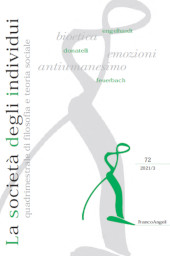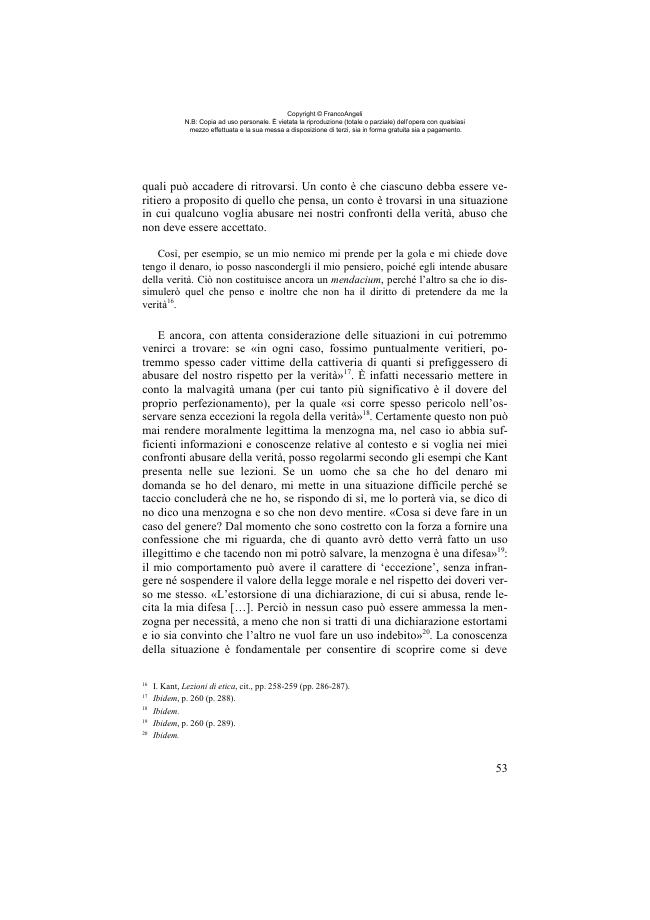Quando l''eccezione' deve essere la regola : a proposito della nozione di dovere largo in Kan.
45-60 p.
The metaphysics of morals (1797) states that one's own perfection and the happiness of others are the ends that are also duties. In difficult circumstances, different actions can put into practice the maxims which promote these ends. In complex situations it is particularly difficult to find a way of doing actions from duty but, in according to kantian ethics, it is always necessary to find a way of applying the principle of virtue, of acting from duty, in the cases that come up in experience. Whereas from a juridical point of view the duty as narrow duty is the concept of an external constraint, from the ethical point of view the duty as wide duty is the concept of a selfconstraint, which shows the freedom and the autonomy of the person.
The duty of one's own perfection consists in cultivation of human faculties, in raising from the state of nature toward humanity, in making the reason the ground determining free will to action. Culture makes it possibile both to find the way of acting in very difficult situations, and to consider such action from duty: the critique of human actions and motivations is a methodological contribution that ethics can offer to bioethics. [Publisher's text].
Forma parte de
Società degli individui : 72, 3, 2021-
Artículos del mismo número (disponibles individualmente)
-
Información
Código DOI: 10.3280/LAS2021-072004
ISSN: 1972-5752
KEYWORDS
- Wide duty, happiness, application of a maxim, culture, freedom



